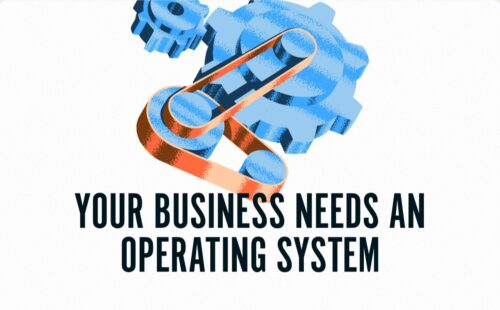So many people compare money made from selling a product to how much they could have made by consulting. It works something like this: a product made $10,000 and took 200 hours to develop, so the hourly rate was $50 an hour. Since the creator can bill out his or her time at $100 an hour, the time would have been better spent on contract work rather than building the product.
I hate this math.
For me it’s not the same at all. I enjoy time spent on my own projects far more than time building something for another company, so that alone makes it worth it. But for those who don’t care as much about whether or not they enjoy their work, think about these two words:
Visibility and Credibility
Nearly all contract projects are private. If you did work for an exciting, well known company, chances are you signed a contract saying you can’t talk about it. Even on the projects you can share, the best you usually get is a screenshot with a one-paragraph explanation in your portfolio.
Compare that to your own project, where you can talk about it as much as you like: explanation blog posts, case studies of your work in action, and breakdowns of each step of the process. The best part is that your name is prominently associated with it.
If the project helps a lot of people (as many open-source projects do), then others will write their own posts about it, further increasing the visibility.
That is worth so much more than the little extra you would be paid working on a contract project that no one has heard of.
The Long Term
Next you need to take into account the long-term revenue. The App Design Handbook (the less popular of my two books) will continue to sell copies for many months to come. It won’t be at the same rate as the first couple months, but it will still be several thousand dollars a month, all without additional effort.
None of my contract projects have made me more money after they were completed. Often I get another contract, but that requires additional time and work.
So when you calculate your time spent and money made compared to your hourly rate, make sure you factor in a long enough timescale.
Creative control
Do you know how it is to design some of your best work only to have a client make some truly horrible changes? Then to watch your design devolve further after the client’s family and friends start giving feedback? It’s horrible.
At times it’s made me want to give up design entirely.
Then I remember that on my own projects I have creative control. I don’t have to deal with clients from hell who will make it so I can’t even feature a design in my portfolio because I want to avoid embarrassment.
Remember all the costs
So next time you find yourself doing the math to decide whether your time is better spent consulting versus working on your own projects, make sure to factor in all the costs. Even the hidden, non-material costs.
This is one of many reasons why I’ve chosen to work on ConvertKit and other projects on my own instead of doing contract work.
By the way, ConvertKit will be opening up to the public in a few weeks. If you want to get in before that happens (with a discount) preorder now.



I’ve done this same math equation over and over and I’m to the point where I think I should never do contract work again. I’m to the point where I want to tell my 9-year old (OK, maybe it’s a little early), “Whatever you do or build or create, make sure it’s scalable.”
In some ways, past contract work is like rent paid: you have little to show for it. Sure, you got a roof over your head, but it’s not yours (it’s not even close to yours).
Thank you for breaking this down so cleanly. Proof that you broke it down into equally important parts is that I couldn’t decide which was more important: Visibility and Credibility, The Long Term, or Creative Control.
Thanks for posting. It’s a needed reminder to move towards those three goals. With EVERYTHING you do.
Just trying to get to the point where I can spend more time on my own projects. Definitely what I’d rather be doing. Right now its just a few hours here and there in between client work (which is not enough time to do a whole lot). Client work is paying the bills right now, but I want to get enough savings to bridge the gap between the creation and revenue of personal projects.
Nothing feels as good as full creative control and knowing that every bit of your effort will go towards your own reward. But sometimes we need to take on clients just to remind us how much trading time for money sucks.
As a rule of thumb it’s also worth nothing that contract work gives you short-to-mid term sustainability, while working on a project maybe just a longshot, and certainly a long term commitment (we’re in the age of disposable software, so when reason in short/mid/long term, I do so relatively speaking).
It’s true also for companies, not just for individual developers: unless you’re a startup going all-in with a specific product, you have to find your way balancing between consulting, contract work and building your own darlings.
In the long term, stability comes from having your own products as cash cows (your books are doing that job) but before that, there’s gonna be a lot of contract work paying the bills.
For a company building a product is also way more expensive than consulting, and much more risky: it drains a lot of time and resources and you have virtually no clients the day launch – and who really knows when and if you’re breaking even?
Great Post Nathan! My brother and I are self taught developers and have a small consulting company. We’re stuck in that vicious cycle of needing money, getting a client, saving a little, building our own stuff, and then needing money again. We’re doing everything we can to break out of this cycle. I would love any insights or products you may have used or created to help you get you where you are today with your business. Thanks again!
I bet if Nathan would be able to draw out a precise plan on his business success that will work with everybody. Along with the hard work there is an element of ‘luck’ involved. For every ‘Nathan’ out there there are a thousand that have tried to follow along and went nowhere.
Thanks for sharing Nathan! This post was interesting because I’ve always done contract work, but lately I’ve been thinking about launching a few products or e-books. It’s really helpful to hear from guys like you who’ve done both.
Keep up the great work shipping products and being a thought-leader by teaching others.